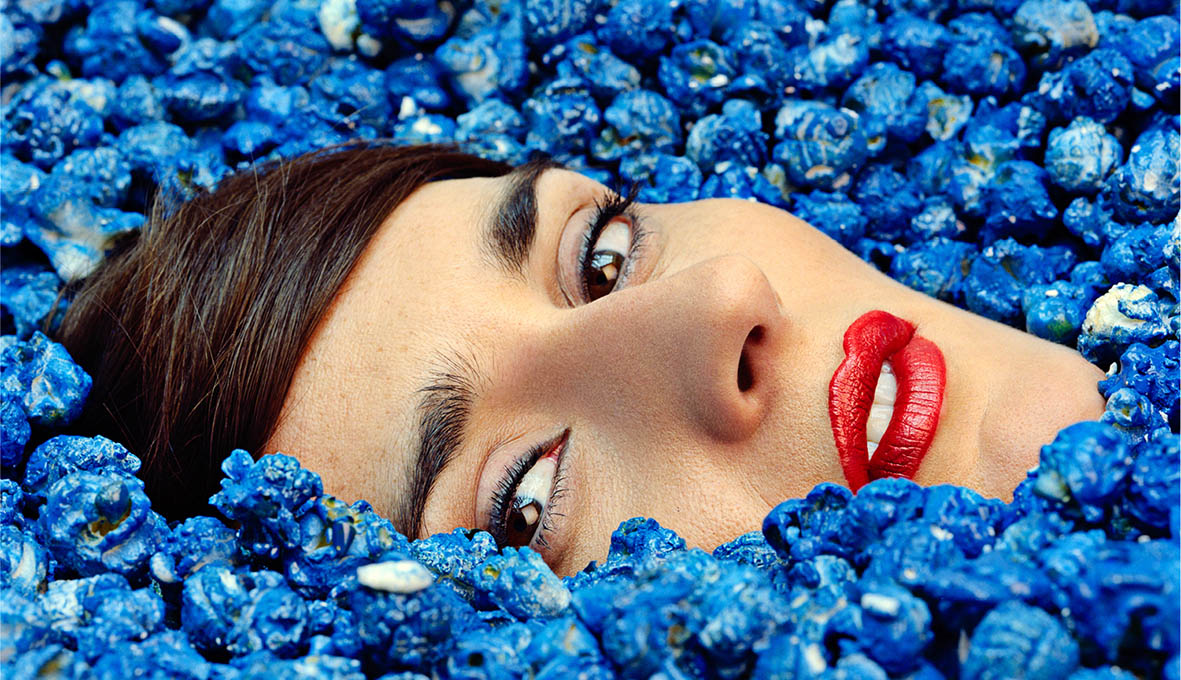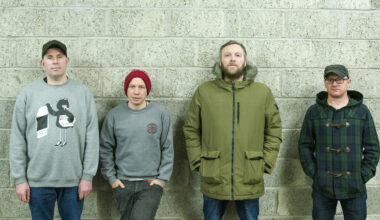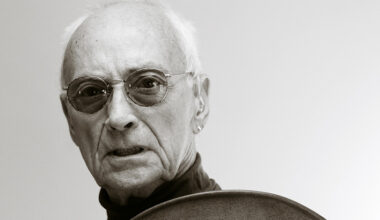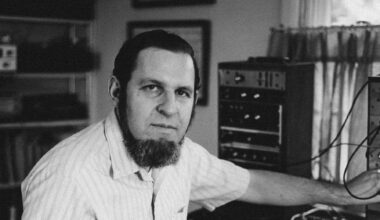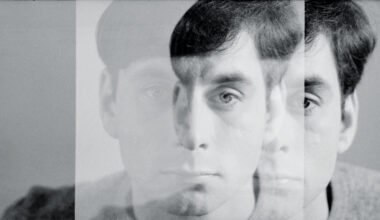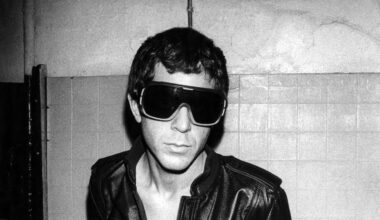Spellbinding electropop, you say? You’d better put us through to our French cousins tout de suite. Picking up the phone in Brittany is Julie Budet, aka Yelle, who makes a welcome return with her latest set of guaranteed floorfillers
If any act embodies the ebulliently self-confident spirit of French electronic pop in the 21st century, it’s Yelle.
With their 2008 debut single, ‘Je Veux Te Voir’, the “solo-duet band” fronted by the eponymous Yelle (aka Julie Budet) went from zero to inescapable with astonishing speed. For most of that year and a fair chunk of the next, you couldn’t go out without hearing it. Whenever DJs – from Hoxton hipster holes to provincial indie nights and their clubland cousins across the globe – wanted to punch a bit of romping joie de vivre into a flagging set, they’d reach for ‘Je Veux Te Voir’.
Most Anglophone punters only comprehended the title, as shouted – yelled, in fact – by Budet over those thumping bedroom-house beats and mangled-to-distortion electro bleeps, and assumed she was merely missing her lover. In fact, she wanted to see the song’s subject/victim in a porno movie (“Je veux te voir dans un film pornographique!”), but for reasons of sadistic ridicule, not lust. The song, originally titled ‘Short Dick Cuizi’ when it was first uploaded to MySpace in 2005, was a brilliantly funny diss track aimed at rapper Cuizinier of Parisian hip hop collective TTC in revenge for the sexist flavour of his lyrics.
‘Je Veux Te Voir’ reached Number Four in France and the follow-up, ‘À Cause Des Garçons’, got to Number 11, while Budet also guested on Fatal Bazooka’s French chart-topper ‘Parle A Ma Main’. And, tempting as it might have been to dismiss Yelle as a novelty two-hit wonder, Budet & Co proved the cynics wrong. Now slimmed down from a trio to just Julie Budet and producer GrandMarnier (aka Jean-Francois Perrier), third member Tepr (aka Tanguy Destable) having left to pursue other projects, Yelle are onto their third album, ‘Complètement Fou’ (‘Completely Insane’), and it’s their most exuberantly poptastic and positive-sounding yet.
“I don’t know if it’s happier,” says Budet, taking a break from rehearsals in the Breton town of Saint-Brieuc. “If it is, it’s probably because we worked differently this time. The first two albums were just recorded with GrandMarnier in our studio here in Brittany. This was the first time we opened the circle of the creation process. Which probably put some different emotions and feelings in it, and it’s important for us to share that happiness and craziness.”
By opening the circle, Julie Budet is referring mainly to writer-producer Dr Luke, the man responsible for some of the biggest pop hits of the last 10 years (‘California Gurls’, ‘Tik Tok’, ‘Price Tag’, ‘Wrecking Ball’ and ‘Since You’ve Been Gone’, to name but five), and his team. Despite his impressive pedigree, Yelle hadn’t heard of him when he first approached them.
“When we remixed Katy Perry’s ‘Hot And Cold’, a guy we were with said, ‘Do you know Dr Luke is a big fan of you?’,” says Budet. “And we said, ‘Who is Dr Luke?’. He liked the remix and he’d come to see us live in 2011, but we didn’t know that. The first time we were introduced and realised who he was, it was crazy. When he asked to make music with us, we said, ‘Yeah, let’s try it!’.”
Working with one of the world’s most successful hit machines meant Yelle turning their creative process upside down.
“We normally start with a word, a sentence, a hook, a vocal line,” Budet explains. “But he was on the other side of the world, sending beats back and forth, so this time we started with a tune and had to write the lyrics from scratch. It helped us to have a fresh vision. It was a real experiment.”
Hilariously, another unlikely collaborator this time was “a French dandy called Jérôme Echenoz”, better known as Tacteel, a colleague of Cuizi (he of the alleged short dick) in TTC. Evidently there’s no lingering animosity between the two camps.
“When we heard Jérôme’s own tracks, it was very close to the way we played with words,” says Budet. “We weren’t sure if he’d be happy about working with us because of the whole ‘Je Veux Te Voir’ thing, but he told us he was a big fan. We did a few sessions with him in Brittany, and now we’ve made a friend. It’s funny how things change over the years, and of course we have a common past, but we were actually huge fans of TTC when we did that song. There are no hard feelings.”
In an age when analogue fundamentalists and digital enthusiasts often seem to be at war, Yelle happily employ the best of both.
“It’s a mix,” says Budet. “When we were with Oligee [Oliver Goldstein, Britney/Shakira producer] in a studio in Silverlake and we had loads of cool gear to play with, it was hard to choose. But we also like to work with plug-ins, because we’re not really into this analogue thing. It’s not something we care about. We just want to find the good sound that will match the mood and what we want to express. It’s sometimes cool to have analogue synthesisers, and have the chance to feel it and touch it, but sometimes it’s simpler in your computer. Or even on your phone. I just downloaded an application called Figure, and it’s like a game, you can make house music on your iPhone…”
If ‘Complètement Fou’ sometimes sounds like a simplistic pop record, that impression is deceptive. ‘Florence En Italie’, for example, was inspired by Stendhal syndrome, which causes viewers of particularly moving works of art to swoon and collapse.
“We went to Florence two years ago, just for 36 hours. We walked through the streets in the night and had a chance to see the architecture, meet the people and feel something deep and strong in this city. We had this idea of talking about Stendhal syndrome. People fainted when they saw too much beauty, mostly during the Renaissance, but maybe it was because their dresses were too tight, or the smells were overpowering. There are stories of tourists falling down because it’s too much. We really liked the idea that the beauty of art can put you through such strong emotions.”
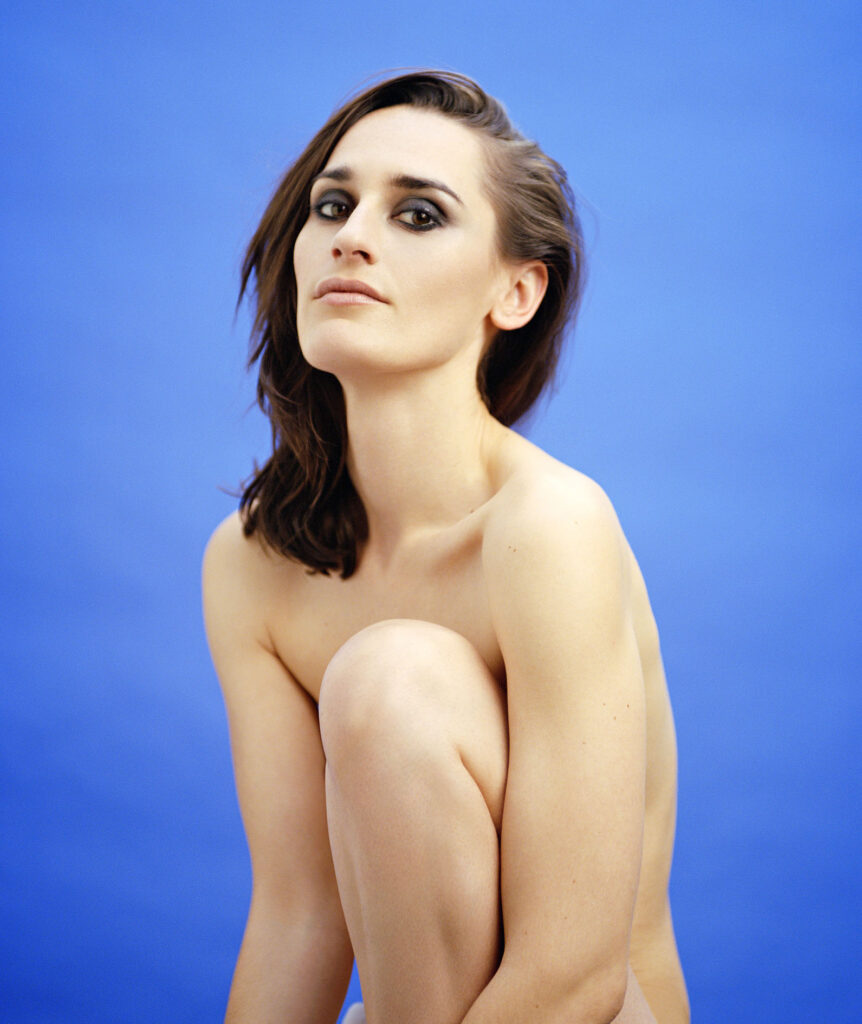
Another highbrow influence on the album was Voltaire’s classic 1759 satire ‘Candide’, which Budet read during the album’s composition.
“There’s a part in ‘Candide’ about Eldorado, the city of gold, full of rich things,” she explains. “I don’t know the word in English, but it’s when you have everything you want and it’s never-ending, the food, the beauty and so on, and we had this in mind, the quest for all that. Most of the time people don’t understand why we stay in Brittany and don’t want to live in Paris. But I just feel my roots are here and my stability is here. I make my own Eldorado here in Brittany. Sometimes people are looking for something in their life and it’s right in front of them. Sometimes it’s just a room in your house, or the garden, a place where you feel that you’re free and you’re at your best.”
Musically, the 80s influence on Yelle is impossible to miss. They’ve sampled Heaven 17’s sublime ‘Let Me Go’ and Budet counts ‘Just Can’t Get Enough’ and ‘Girls Just Wanna Have Fun’ among her favourite songs. She also often namechecks Prince and Madonna, who makes an appearance in their photo-montage video for ‘La Musique’ (made by the team who created Pharrell Williams’ 24-hour ‘Happy’ video) playing a dead chinchilla like a guitar, a sly reference to the singer’s infamous coat, made from 40 of the unfortunate rodents. What’s mentioned less frequently is Yelle’s debt to the French pop of the 1980s, before French music became officially cool. Indeed, ‘À Cause Des Garçons’ itself is an 80s cover.
“French bands inspired us first,” says Budet. “I grew up listening to French pop… Etienne Daho, Chagrin D’Amour, Elli & Jacno, Les Rita Mitsouko, even early Mylene Farmer. We found that stuff in our parents’ collections.”
Perhaps that blind spot is caused by the language barrier. An insulting number of interviewers have questioned Budet’s decision to sing in French, even though much of Yelle’s tongue-twisting wordplay (try saying “C’est pas une vie la vie qu’on vit quand on vit pas la vie qu’on veut” without tying your lips in knots) would be lost in translation anyway. Her brilliant response, in ‘Amour Du Sol’, is the line “Je chante en Français des années 80” (“I’ve been singing in French since the 80s”).
“I can understand people asking why,” she says. “But it’s really important for me to keep expressing myself in French. We thought about having a few English sentences on this album, but it didn’t happen.”
Despite hailing from the unfashionable backwater of Brittany, Julie Budet feels Yelle are part of the wave of French electropop that has been rolling since the late 1990s.
“I think we are part of that generation,” she says. “We are all children of Daft Punk, and of course we grew up with listening to that sound. And we are interested and curious in what people are doing around us, even if we are alone in our little city.”
In their early days, Yelle were often mentioned in the same breath as France’s tecktonik street dance craze, and Budet does feel a kinship with many of her compatriots.
“With the internet, the game totally changed, and it’s easy to hear brand new stuff from anywhere,” she says. “Even though we want to stay in Brittany, we have lots of friends in music in Paris – all the Ed Banger crew and lots of other people we’re working with.”
The country that has taken to Yelle the most, perhaps surprisingly given its reputation for linguistic and cultural insularity, is the USA. On ‘Bouquet Final’, the lead single of ‘Complètement Fou’, Budet puns “Nos etats sont unis, baisons comme de bons amis” (loosely translated as “Our states are united, we fuck like good friends”). A reference, surely, to America’s love of Yelle?
“Probably, yes”, she confirms. “But ‘etat’ in French also means how you feel physically and emotionally, so we like these double meanings. This connection with the US is something we always like to play with. And if people can understand it, it’s cool.”
This theme continues on the album’s striking artwork, which depicts Budet’s face drowning in a sea of blue popcorn.
“We wanted a close-up because it’s probably our most intimate album, but part of me is hidden because I’m still hiding some secrets. People have asked, ‘Is that flowers? Is that rocks?’. And lately we’ve realised it’s also an image of being in the ocean, surrounded by water, because this is an album we made between Saint-Brieuc and LA, and there’s the Atlantic Ocean in between. And popcorn, for us, is the representation of the US. In the US, corn is the cereal everyone eats, it’s a huge industry, but in France it has a bit of a bad image. So it’s a link between the US and Europe.”
Yelle spent three whole years touring their debut album, ‘Pop-Up’, with many dates in America, and did almost as much gigging for its follow-up, ‘Safari Disco Club’ (including a stint supporting Katy Perry). Some acts would buckle under such a punishing schedule, but Budet misses it when it ends.
“After doing a few tours in different countries, you realise it’s kind of a drug,” she says. “Because there’s this moment when you’re back home and you don’t have your shot of energy and happiness and love every night, so you have to find something else to fill that empty part. The last time, we ended the tour in December. So there was Christmas, then it was January, and it was cold and grey outside and, even though I love my city and my house, it was a little bit depressing.
“But you have to get through this to realise what inspired you, to make you work again and compose again. It’s evolution. It’s your life, but it’s always in parallel to your private life. It’s necessary to digest everything you loved, and then create something new.
“I just need to go on holiday and find a place with sand, and see my friends, and start another creation process. Maybe not music. A project, working on fashion, a movie… You have to put all that you have into something different. I’m sure I’ll do that next time.”
Budet, who used to work for a theatre company, is a big believer in bringing theatricality to Yelle’s live performances. Rather than clinically replicating the records, she consciously introduces chaos and disruption into the mix.
“It’s really important for us to give something different from the album,” she says. “The records are very electronical, but we have two drummers live. It’s important to remix the song to have a connection with people. To share something, to play with it, and to play with the crowd.”
And when Yelle invite you to play, you’d be completely insane to decline.
Three Is A Magic Number: The three Yelle albums (so far)
‘Pop-Up’ (Source Etc, 2007)
Yelle’s vibrant debut, featuring the world-conquering ‘Je Veux Te Voir’ and the follow-up single, ‘À Cause Des Garçons’. A silver-selling success despite almost no radio support in their native country and subsequently strip-mined by countless fashion shows, film scores, TV trailers and computer games for instant slices of shouty French fun.
‘Safari Disco Club’ (Barclay, 2011)
Recorded with prolific Berlin producer Siriusmo and released on the iconic Barclay label (Brel, Aznavour). Described by some guy from the Independent On Sunday as “essential for anyone who appreciates dancefloor-friendly European synthpop” and “like a Francophone hybrid of Ladyhawke and Peaches, with [Budet’s] in-your-face delivery and gloriously high-on-E-numbers sense of melody”.
‘Complètement Fou’ (Kemosabe, 2014)
The polished electropop gem, created between Brittany and LA with American pop heavyweight Dr Luke and released on his own Kemosabe label. Takes Yelle’s existing neon colours and turns up the intensity to create a sound resembling Daft Punk meeting The Knife on a particularly cheerful day.
‘Complètement Fou’ is released on Kemosabe Records
